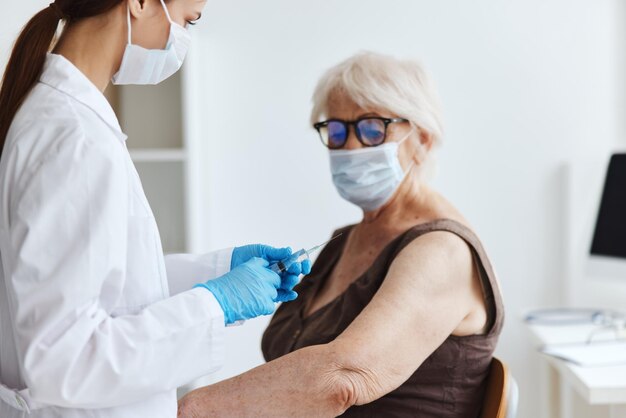When Are You Contagious After the Shingles Vaccine? Everything You Need to Know
Imagine getting vaccinated and still worrying about being contagious—sounds puzzling, doesn't it? Let's dive into the details of the shingles vaccine to clarify any confusion. The reassurance of being safe for yourself and others lies in the understanding of how vaccines work, especially for contagious conditions like shingles.
What is Shingles and How Does it Spread?
Shingles, also known as herpes zoster, arises from the reactivation of the varicella-zoster virus, the same virus responsible for chickenpox. Once you've had chickenpox, this virus lies dormant in your nerve tissues. In some individuals, the virus reactivates years later, leading to shingles.
While shingles itself cannot be directly transmitted, the varicella-zoster virus can be passed on to another person, potentially causing chickenpox in someone who has never had it or hasn't been vaccinated. The virus is usually spread through direct contact with the fluid from the shingles blisters. Key takeaway: Once the blisters scab over, the person is no longer contagious.
The Role of the Shingles Vaccine
The primary shingles vaccines—Shingrix (recombinant zoster vaccine) and the older Zostavax (live attenuated vaccine)—are designed to reduce the risk and severity of shingles and its complications, such as postherpetic neuralgia.
- Shingrix is the newer vaccine, recommended for adults over 50 and those with weakened immune systems. It’s preferred due to its higher efficacy.
- Zostavax was the first shingles vaccine but is less commonly used now due to its comparatively lower efficacy.
These vaccines help your immune system keep the varicella-zoster virus in check, thereby decreasing the chances of reactivation.
How Do Vaccines Work in Preventing Contagiousness?
Vaccines stimulate the body's immune response without causing the disease, helping the immune system recognize and combat the virus more efficiently if exposed in the future. Important note: Shingles vaccines do not contain a live virus capable of causing infection, meaning they don't contribute to contagiousness.
Are You Contagious After Getting the Shingles Vaccine?
If you receive the Shingrix vaccine, it uses a non-live component, which means it cannot cause shingles or chickenpox, nor can it make you contagious. You are safe around others, including those at high risk, like pregnant individuals or those with weakened immune systems.
With the Zostavax vaccine, there's a slightly more nuanced view. Although it's a live attenuated vaccine, it is designed to be non-contagious. There have been rare instances where the vaccine strain of the virus has been transmitted, but such cases are extremely uncommon. However, consult your healthcare provider if you have concerns, especially if around vulnerable individuals.
Benefits Beyond Contagion
Getting vaccinated against shingles provides protection beyond just reducing contagion. Here are some other indispensable benefits:
- Reduced Risk of Shingles and Complications: Vaccination significantly lowers instances of experiencing shingles and its long-term pain complications.
- Lessens Severity: If you do contract shingles after vaccination, the severity and duration are diminished.
- Peace of Mind: Understanding that you're doing your part to prevent viral reactivation and potential spreading offers peace and confidence.
Vaccination Guidelines and Considerations
Who Should Get Vaccinated?
Most adults over the age of 50 should consider the shingles vaccine, especially those who:
- Have had chickenpox.
- Are at higher risk for shingles.
- Have an increased risk for complications related to shingles.
Eligibility: Always check with your healthcare provider to confirm eligibility and discuss any health conditions that might affect vaccination.
Timing and Dosage
For Shingrix:
- Schedule: Two doses administered 2 to 6 months apart.
- Efficacy: Offers over 90% protection, which diminishes slightly over years but remains significantly high.
For Zostavax:
- Schedule: One single dose.
- Efficacy: Lower than Shingrix, with about 50% effectiveness, further reduced in older adults.
Side Effects
Both vaccines may cause mild to moderate side effects, including:
- Redness or swelling at the injection site.
- Muscle pain or fatigue.
- Mild fever.
These side effects generally resolve in a few days and are indicators that your body is building protection against the virus.
Important Considerations for Special Populations
- Pregnant Women: Shingles vaccines are safe and effective but are generally not recommended during pregnancy. Postpone vaccination until after delivery.
- Immunocompromised Individuals: Special consideration is given as both the risk of shingles and complications are higher. Shingrix is preferred due to not containing live virus material.
Practical Steps and What to Expect
Before Vaccination:
- Discuss any medical history, including current medications or allergies.
- Plan for downtime after vaccination in case of mild side effects.
After Vaccination:
- Monitor for any adverse reactions.
- Note any appointments for second doses if receiving Shingrix.
- Continue regular health check-ups and preventive measures as discussed with your healthcare provider.
Wrapping It All Up
Ultimately, when contemplating, "How long after shingles vaccine are you contagious?" the key reassurance is that you're not contagious because of the vaccine. The shingles vaccines facilitate a proactive shield, empowering individuals to guard against the reactivation of the virus, minimizing both personal discomfort and potential spreading indirectly.
By choosing to vaccinate, you embrace a health-forward mindset, improving not just your well-being but also contributing to broader public health efforts. Be informed, be proactive, and enjoy the confidence that comes with taking charge of your health journey.
🤔 Shingles Vaccine Quick Facts
- Shingles Spread: Only during active blister phase.
- Vaccine Contagiousness: Shingrix (non-contagious); Zostavax (extremely rare transmission).
- Primary Vaccines: Shingrix (preferred), Zostavax (less common).
- Who Should Get Vaccinated: Adults 50+, immunocompromised.
- Side Effects: Mild and temporary.
- Protection Benefit: Reduces risk of shingles and complications.
Stay informed and shield yourself and others by considering vaccination against shingles today! 🌟

